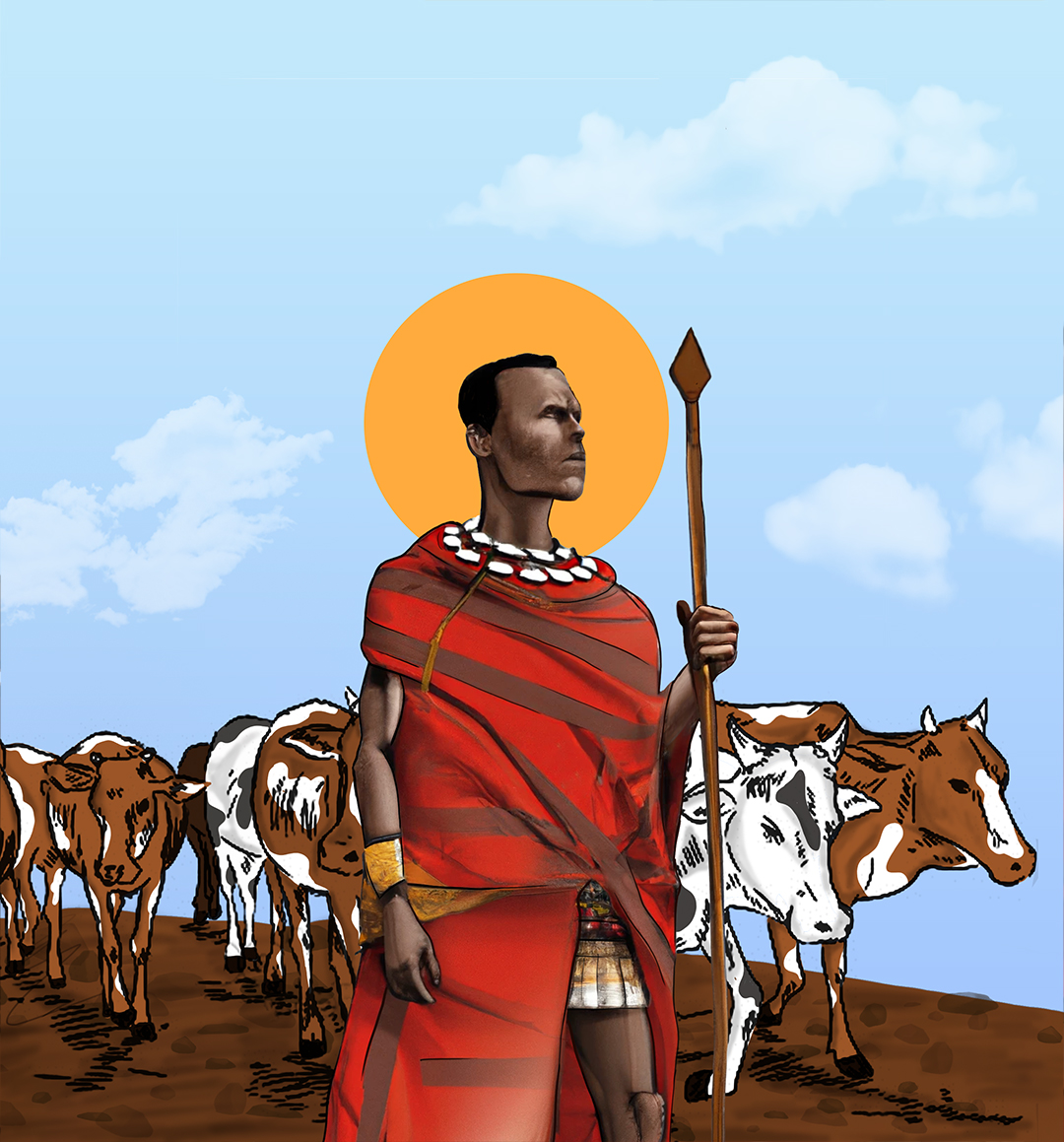We ask ourselves, how can vi diversify?

How do we comfortably and sustainably live together with the dry conditions and wildlife? Our village of 210 people is eager to change.
In Maasailand you cannot walk without a stick. You carry a small stick, and it has meaning. The black stick I bear signifies leadership.
Maasai lives in the arid southern part of Kenya. We are a pastoralist and nomadic community living in dry conditions. In 2009, there was a great famine that took almost half of the cows from families in our community. Elephants, buffalos, and cows were dying. The whole year was a mess, and it remains in the memory of everyone. We almost lost everything.
The seasons are changing, and we ask ourselves, how can we diversify? How do we comfortably and sustainably live together with the dry conditions and wildlife? Our village of 210 people is eager to change. Together with the community, I have been able to make what we call ‘the blue areas,’ or sustainable agriculture zones. I have also planted 100 trees, and I hope in the years to come to plant 2000 more trees.
What inspires my work is the way I was brought up. I was raised by a single parent. Then, three days before completion of High School, she passed away. So, I am used to being alone. The way she served me, by giving me an education, made me want to give back to the community. The community has been encouraging me. They show me love. For me, it’s about giving back to them. It’s all about the village.
Nature respects humanity. I learned that from my community. For instance, there was a pregnant lady standing next to an elephant, but she begged for mercy and was not attacked. One day I was going to school and an elephant ran after me. Another day I came face to face with a lion. These are among the memories I have. When you are raised in an environment, you gain some confidence. You adapt. So I was not that scared. Situations like these are something I’ve been taught how to deal with.
To adapt to climate change, we need to plant trees, diversify livelihood, and change some traditional land practices like keeping and grazing many cows in a small area. We also need lights to keep the elephants away from our blue areas. When the elephants see blinking lights they are scared. The lights would protect the goats and the cows from lions and hyenas, and the elephants would not attack. It’s something that we really need.
Sustainability, to me, is something you can do locally, at home, using simple technology. I will contribute to rural economic activity and plant as many trees as I can.
Trees bear associations to life. When you see a tree you have planted and watch it grow, it brings happiness.
Story by Samuel Lekato. Samuel is the founder/chairman of Enduata Emaa Community Based Organization. He is from Ilkangere village, next to Amboseli National Park, Kenya. He has a bachelor’s of economics and statistics from Mount Kenya University.
Contact Samuel to connect and check out Enduata Emaa Community Based Organization to support their community projects.
Art by Ignatius Arts. His compositions celebrate black beauty and aim to tell untold stories and experiences by representing the various hairstyles, traditional garments and natural traits of the subjects. His works also alternate motifs, colors and tribal forms typical of Africa that enhance the message of strength transmitted by the people represented.
This story is part of our story prosjet Voices of the land: Decolonizing sustainability.
Read more stories centered on sustainability and climate justice, decolonization and liberation, and any emotions related to land, like belonging, responsibility, and care.